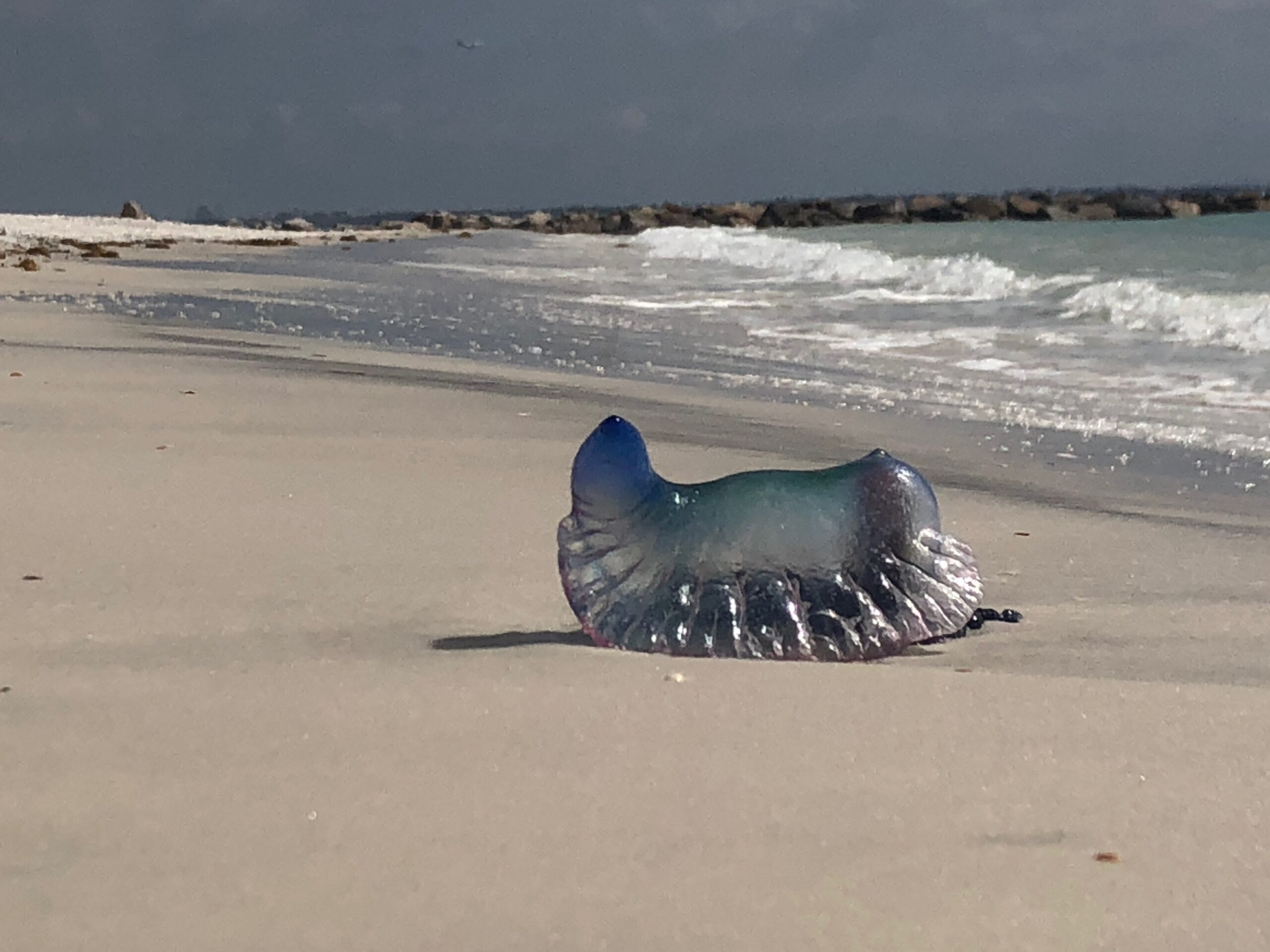Portuguese Man-Of-Wars wash up on Gulf County beaches
Gulf County locals and visitors were fascinated by the strange, blue creatures dotting the beaches over the weekend, taking to Facebook to share photos and discuss their mystery.
But the small Portuguese man-of-wars that have been washing up on shorelines across the Florida panhandle just in time for Spring Break, while delicate in appearance, pack a powerful punch.
“I would admonish people that if you see them, don’t touch them,” South Walton Fire Department Beach Safety Director David Vaughan told our media partners at WMBB. “And if we are flying purple flags, and you see them washed up on the beach, they are certainly in the water. And I think it would be ill-advised to go into the water and take that risk because their tentacles can be quite long and hard to discern which direction they’re going. So you can become an unwitting victim pretty quickly.”
Purple warning flags have been flying over the beaches at Cape San Blas and Indian Pass, the only Gulf County beaches with warning flag programs, according to South Gulf Fire Rescue Assistant Fire Chief Patrick Foy.
Purple flags signify hazardous marine life.
While rarely deadly, Portuguese man-of-war stings are extremely strong and can cause welts on exposed skin.
Despite its jellyfish-like appearance, the creature is actually a siphonophore, or a colonial organism made up of smaller units called zooids, which are genetically identical but fulfill specialized functions like feeding and reproduction.
The zooid responsible for hunting, which hangs from the organism a tentacles and can stretch up to 40 feet, deploy venomous nematocysts to stick to and kill its prey. This causes an extremely painful reaction in humans and other animals. On rare occasions, man-of-war stings can cause human deaths.
Officials have advised that beachgoers exercise extreme caution when near the Gulf of Mexico. If someone is stung, South Walton Fire District said, it is important that the individual not remove the creature with their bare hands. Instead, they should use gloves or another object, like a stick, to pry the man-of-war off.
Then, the person should rinse the affected area with warm water and seek medical help if they experience severe symptoms.

